
Phil Moore
Monday, April 08, 2013
Mogadishu, Somalia – Mogadishu has come to symbolise the epitome of the war-torn city. The Somali capital was engulfed by civil war in 1991 when President Siad Barre’s regime collapsed, leading to open conflict between competing warlords. US forces intervened in 1993, culminating in the Battle of Mogadishu, in which 18 Americans and hundreds of Somali militiamen and civilians lost their lives.
Last week, amid secrecy and last-minute preparation, 18 entertainers waged a war of a very different kind, as international artists from seven countries performed in Somalia’s first formal music event in more than 25 years.
The city once had a thriving music scene, with Somali jazz filling the night air in the 1960s and ’70s. But the hard-line al-Shabaab group outlawed music in 2009, and despite their ouster by African Union forces in 2011, the hangover from al-Shabaab’s rule has remained.
International acts from the US to Sudan supported Waayaha Cusub, a Somali hip-hop collective who formed while in exile in the Kenyan capital, Nairobi. They had never before played a concert in Mogadishu. Shiine Ali, who founded the group, has spoken out strongly against al-Shabaab, which made him a target in 2007 when gunmen shot him five times and left him for dead.
Since then, his lyrics have continued to encourage Somalis to turn their back on al-Shabaab. He believes these concerts represent a major milestone in Mogadishu’s return to normality.
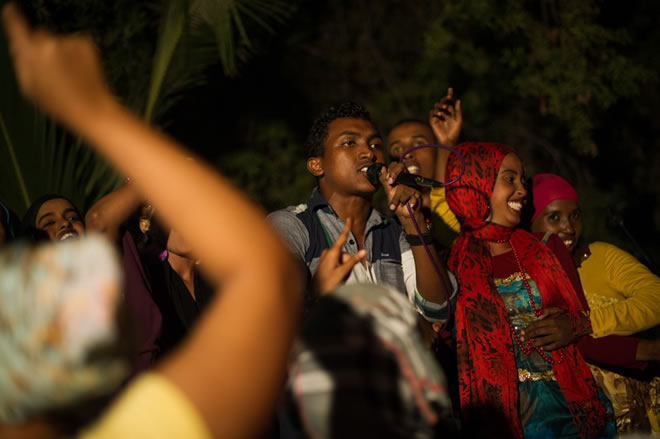
Festival-goers revelled in the opportunity to see acts such as Waayaha Cusub to dance and let down their hair – literally. The organisers hope that it will usher in a new era in the city’s turbulent history.
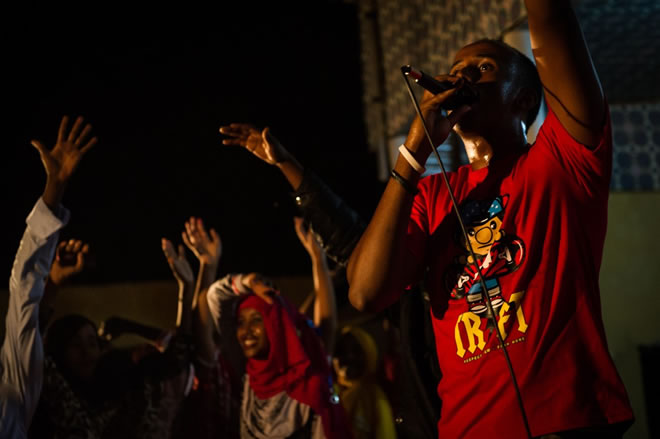
Phil Moore/Al Jazeera
Somali band Waayaha Cusub headlined a series of concerts as part of the Mogadishu Music Festival, the first event of its kind in more than 25 years, and the first time the anti-al-Shabaab group have performed in their home city.
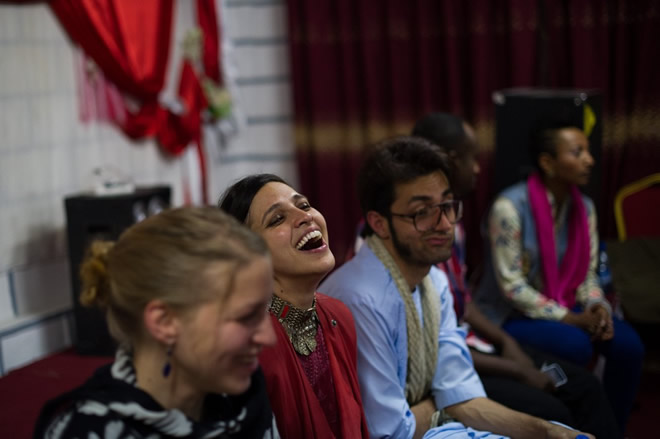
Artists from seven countries, from the United States to the Philippines, flew into the Somali capital to perform as part of the festival aimed at promoting peace.
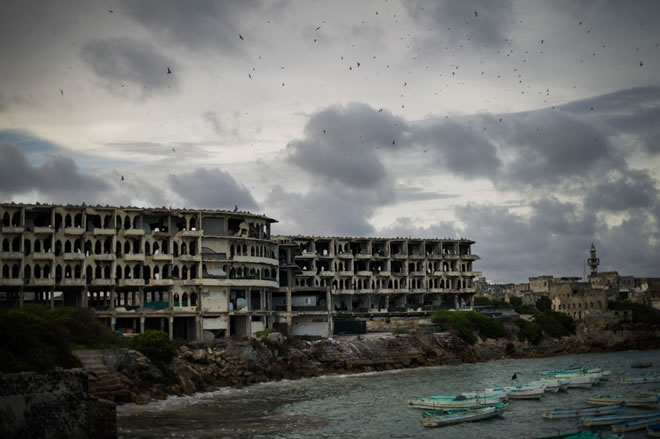
Mogadishu has been torn apart by more than two decades of civil war. The Aruba Hotel used to host a bustling night-club, but the building now remains a ghostly shell after years of bombardment.
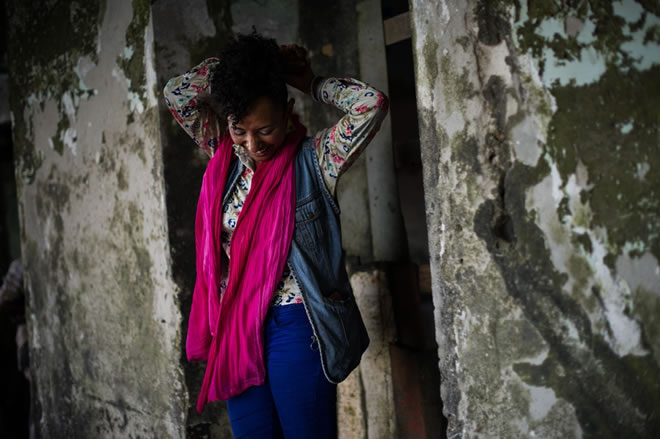
The city formed a unique backdrop for music videos and photo-shoots: vibrant young performers such as Sudanese singer Alsarah juxtaposed against the city pockmarked by bullet holes and shell scars.
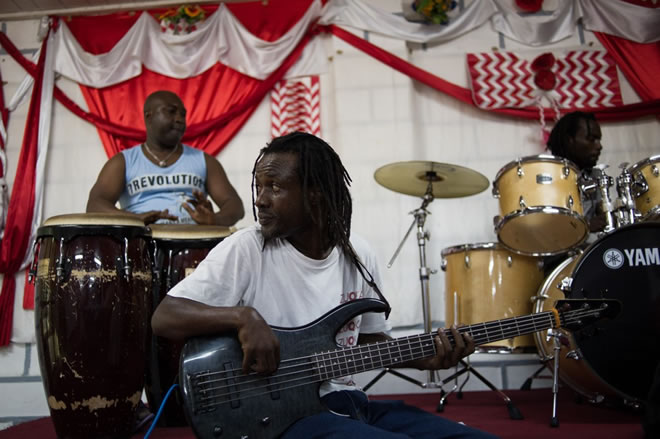
The city lacks the proper infrastructure for music performances. Above, Kenyan band Afro Simba rehearse in a conference room at a hotel that is emerging in the post-conflict climate of investment and development.
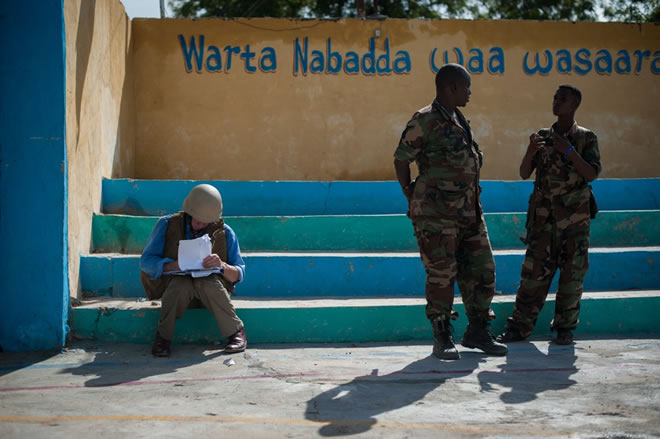
Security for the concerts was a major concern, as the festival provided an ideal target for al-Shabaab. Details and dates of the concerts were released to the public only hours before the acts took to the stage.
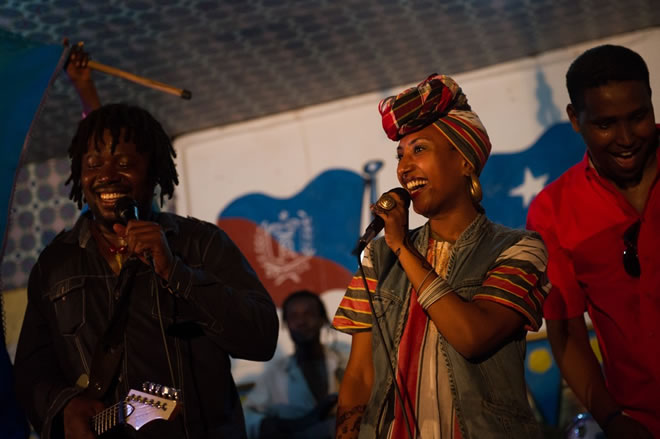
Once the music started, any fears the artists had were forgotten, and artists who did not know each other prior to the festival collaborated on mixed performances.
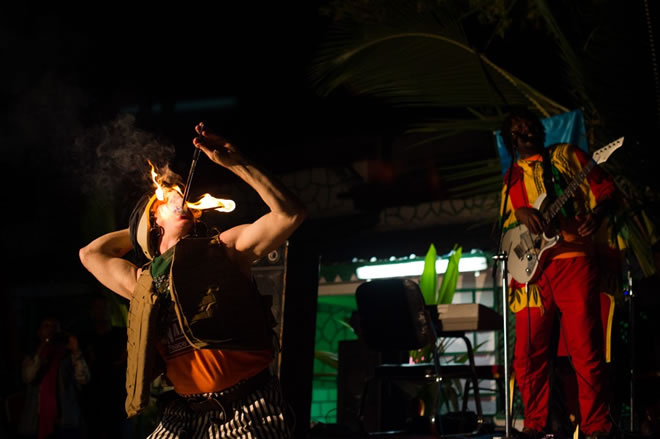
Bill Brookman, an artistic consultant hired by the United Nations who partially funded the festival, brought fire-eating to hundreds of Somalis who had never witnessed such a thing.
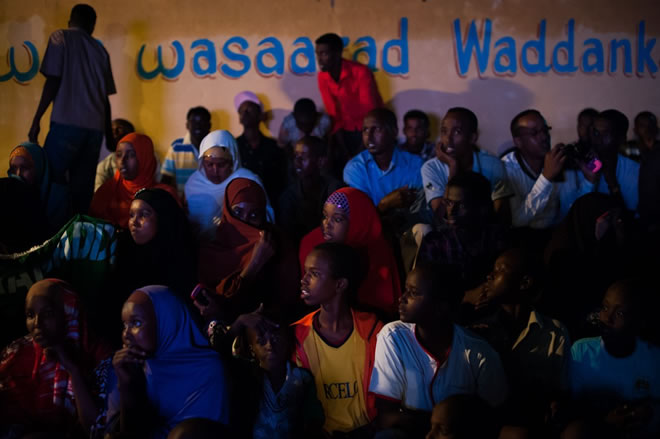
For many present, this was the first time that they had seen live music performed in their city. “I’ve never seen this before,” said Abdullahi, a 13-year-old resident of Mogadishu. “It makes me want to dance.”
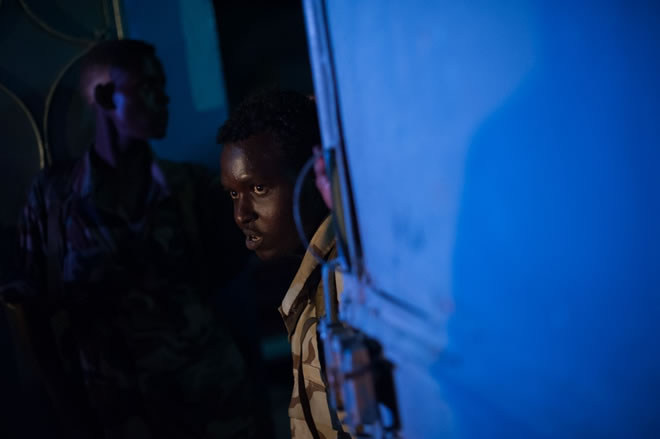
Despite the threat that lay outside the event’s gates, security guards could not help but soak up the atmosphere at this historic festival .













